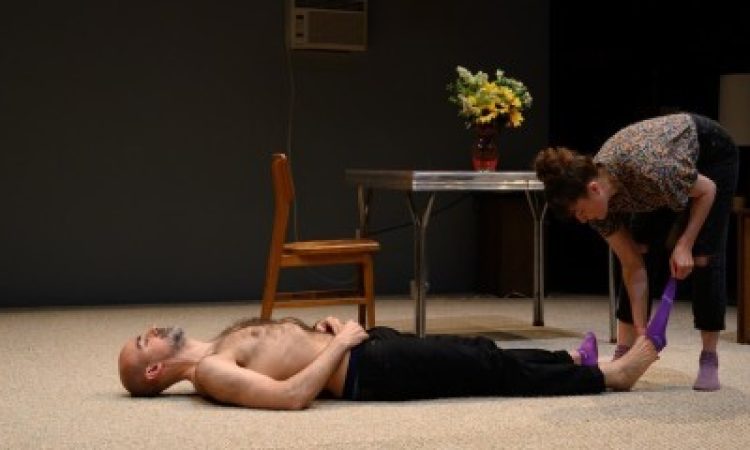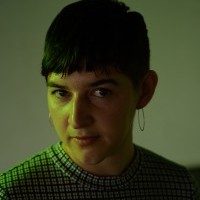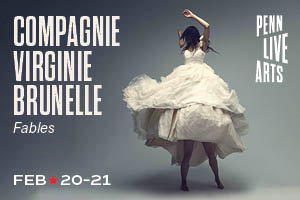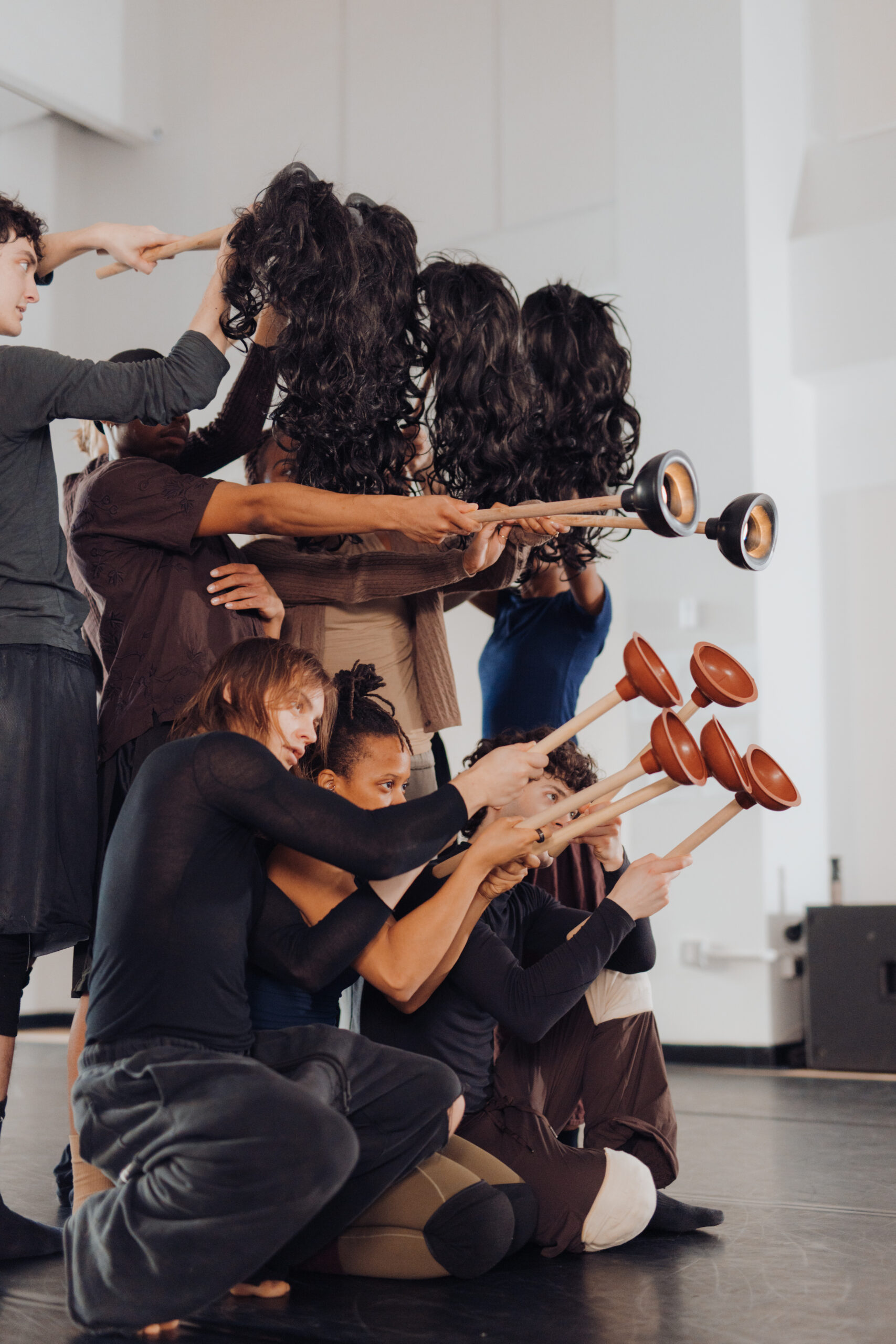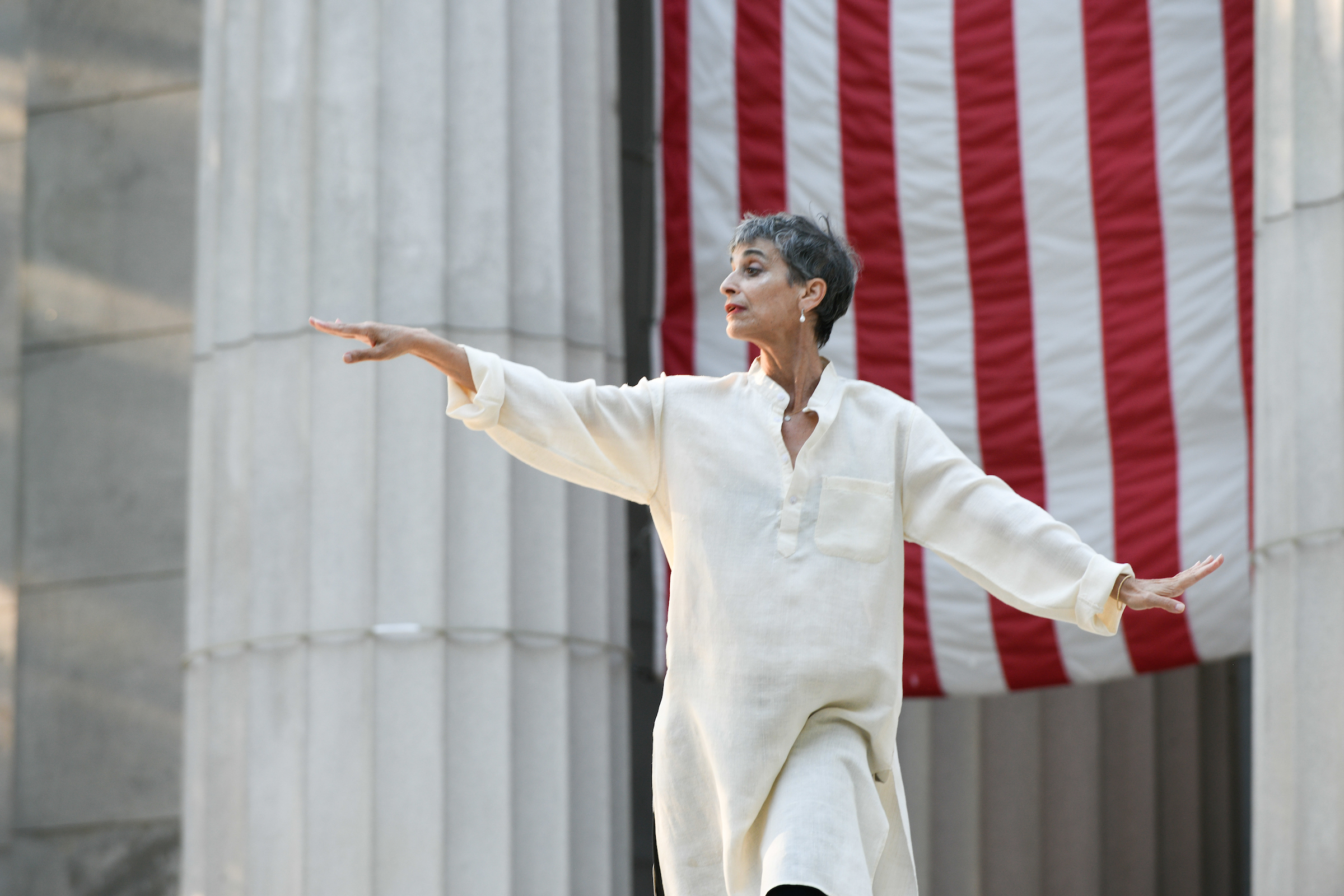Sincerity is personal. No one knows this better than Mark, Rachel, Ben, Makoto, Mel, and Aram of Team Sunshine Performance Corporation, who have committed to performing their own ritual of sincerity every two years until 2038, creating and re-creating The Sincerity Project, playing themselves, and using their lives as material. My first Sincerity Project was #2, back in 2016 (#1 premiered in 2014). It was a mere ten days after I moved to Philadelphia. I had never seen performers talk to the audience that authentically while also performing physical theater with intense presence. I called my mom to tell her that I would be back for the next iteration, no matter where I was living. I volunteered for the show, so I got to don the postman’s cap (absent in #3) to encourage audience members to write letters to themselves, which Team Sunshine would save and bring to the next performance two years later.
I got to read my 2016 letter this week. It was full of a fierce desire to capture every detail of first days in Philly—the manner of it, not the matter. I wrote about how my body felt writing the letter (I was still vibrating with energy from the performance) and my hopes for my two-years-from-now self, some of which have come true (being surrounded by love) and some of which I’m still struggling over (finding a place for my own art, and not getting into an envious rage when I see good performance). I wasn’t in such a vibrant physical place this go-around, trying to write my letter; we’ll see if my 2021 self finds it boring.
A helium balloon in the corner tells me “Welcome Home.” I think about scenes that resonated with me from 2016 and get excited to see them again, like reruns of my favorite sitcom. Back then, there was a real sense of wonder that we’re doing this, and we’re going to keep doing it into the future! That show examined vulnerability and sincerity through the performers’ lives, rolling those concepts around and experimenting with different pathways to access them. A program note explains that, from the first performance in 2014, “we were looking at speaking and physicalizing ‘authenticity,’ and we looked towards our lives as a place to pull content.” In #3, the investigation of sincerity as a concept is, for me, eclipsed by the weight of the content from the performers’ lives.
Since 2016, Mel and Aram have both lost their fathers and #3 centers on their experiences, unfolding as a series of monologues mostly delivered seated or kneeling downstage. The show flows from one speech to another with physical interludes never quite disrupting the contemplative tone. Often, while someone talks, two others place a different performer in a chair, then tilt them backwards slowly until their back is on the ground. They slide the chair out and gently guide their legs to the floor. The person on the floor keeps eyes open while the others undress them gently. Caregiving. A parallel to Mel’s stories of caring for her declining father. I recognize the physicality of this from my grandmother’s last days. I also miss the messiness of physicality without clear metaphor, of joy in physical movement itself. Am I an asshole, asking this performance to be joyful when the performers are grieving? Or does my desire for dynamic shifts point to an unaddressed concern about the composition of the show and the attention given to the audience’s experience? (That’s a sincere question.)
I miss the cool shock of physicality I enjoyed so much in #2— the performers hopping around the stage, two of them racing to strip to their underwear, or cracking eggs into a skillet. These compelling moments shook up the energy on stage, allowing for more personal stories and vulnerability, shared without monotony. The most disruptive point in #3 comes from the three men in the company crescendoing in a virtuosic a cappella version of the explosions, gunfire, and screams of the Dunkirk soundtrack. It disrupts the contemplation, but doesn’t lift the dark.
There is the joy of birth—Mel also had a baby, who makes an appearance—and of coming out. Mark and Rachel have both had queer(er) transformations since #2, though I don’t get to see much of that queer joy on stage. Mark talks about grieving their past self, they pause, searching for the right words. “I wanted to leave this part open,” they say, reminding me that, by comparison, much of the rest of the speaking is scripted.
Sincerity is a slippery thing to script. Add to that the accumulating history of the project, each performance both in conversation with the previous (and future) performances and needing to stand on its own (especially for newbie audience members). I’m still enamored with this mammoth concept, “each performance … a weigh station on a 24-year journey,” and the ethos of sincerity the performers strive for. On my second go around, I’ve got my own expectations and history with the piece, desires and memories to contend with. They can accumulate like detritus, blocking my view, or build the foundation of a relationship that gains meaning over time.
The Sincerity Project #3 (2019), Team Sunshine Performance Corporation, FringeArts, June 4-8.
